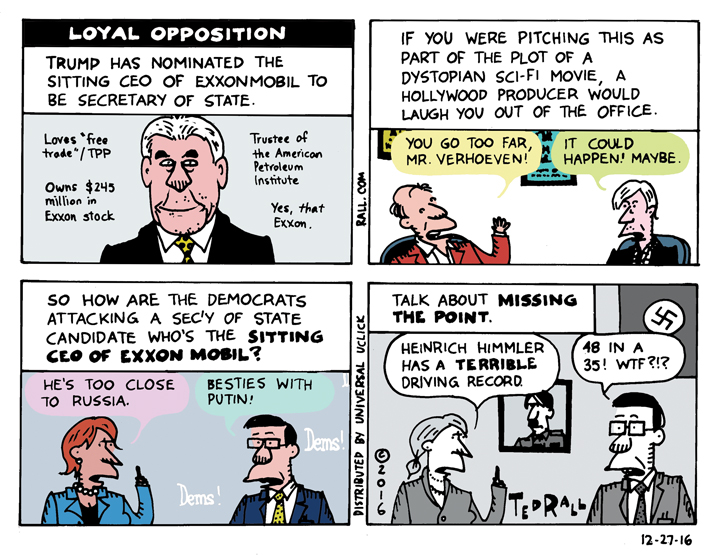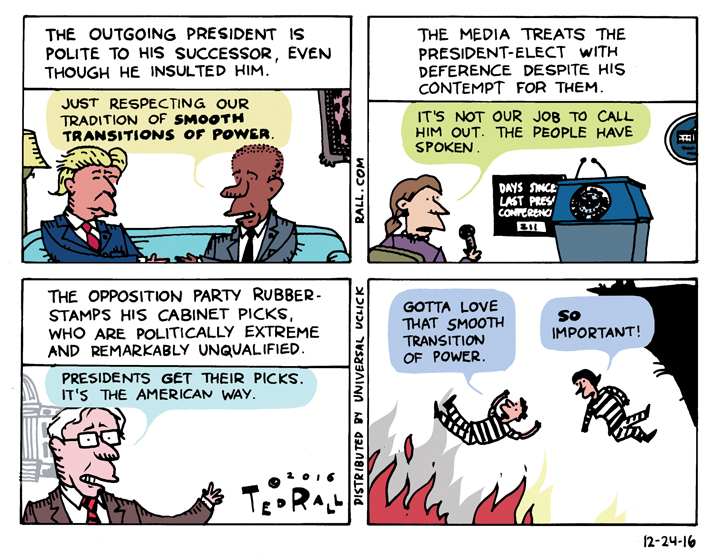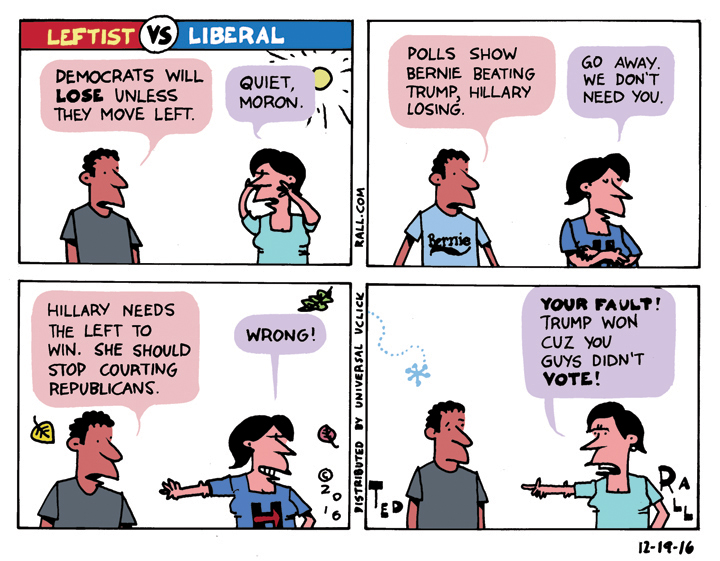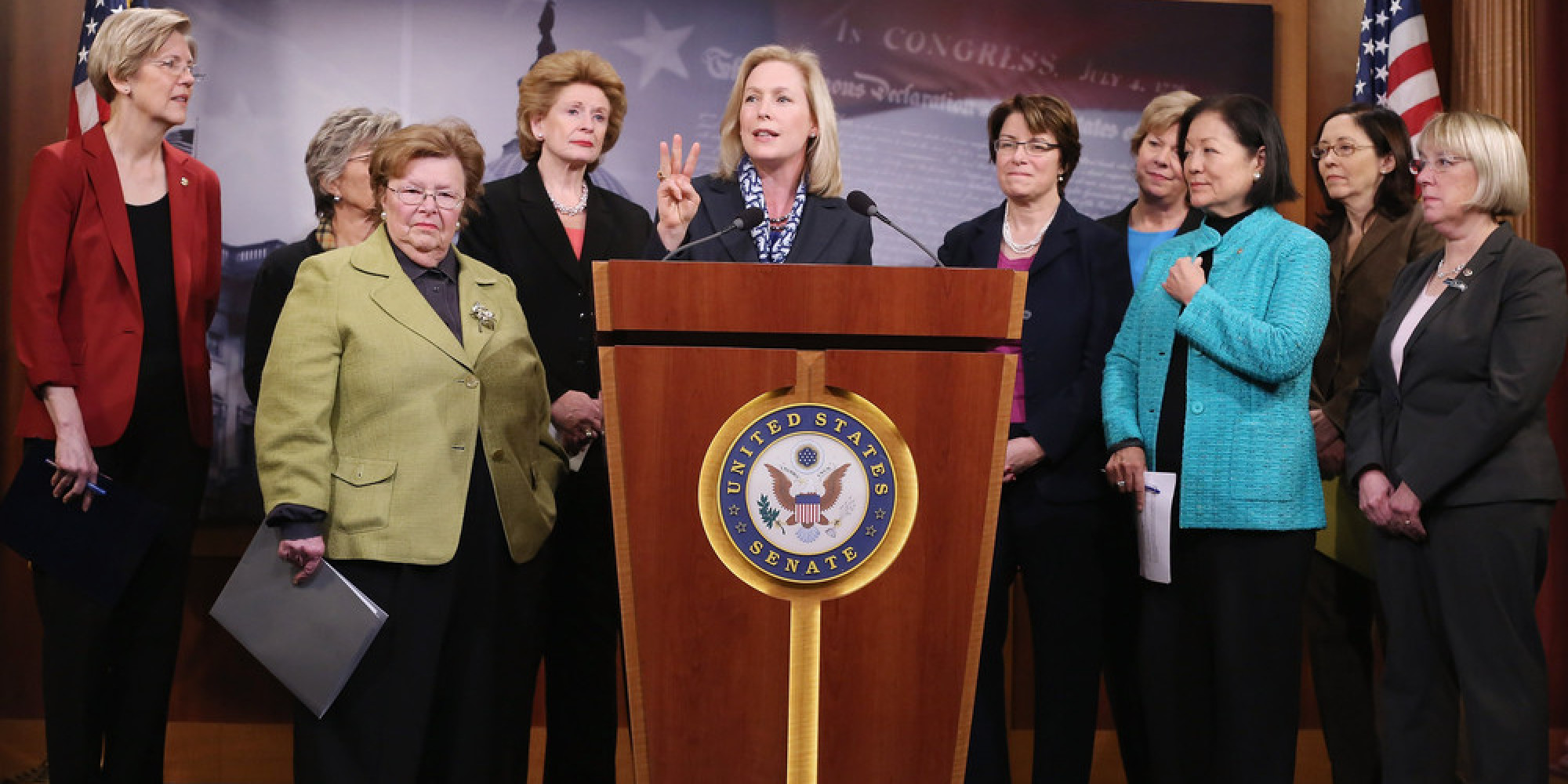
I admit it: it’s hard to find empathy for the liberal Democrats who supported Hillary Clinton and are now shocked, shocked, shocked that That Horrible Man Donald Trump is about to become president. We lefties kept saying (and liberals kept scoffing) that Bernie would have beaten Trump; now that we’ve been proven right it’s only natural to want to keep rubbing the Hillarites’ faces in their abject wrongness.
But what’s the point? Empirical evidence can’t convince a squishy liberal to move left. Liberals are congenitally attached to the big status quo, the capitalist system itself. Unlike leftists, liberals just want to reform capitalism into something less savage. This, of course, is impossible. Yet liberals’ fears — of revolution, of violence, of the chance they’ll lose their current status — block their ability to see the truth.
Anyway, many of my best friends are liberals. And they’re terribly depressed at the prospect of four to eight years of President (or more for President-for-life) Trump.
I hate to see so many people so miserable (even though the very same people gloated over their Bernie-supporting brethren’s pain last May). More importantly, they’re right about Trump. He is a dangerous mofo for sure. We on the left, accustomed to do all the protesting and carrying on ourselves, are going to need all the help we can get from sad Hillary Clinton Democrats to take on Trump, his Republican House, his Republican Senate, his soon-to-be Republican Supreme Court and, oh yeah, his thousands of police departments, soldiers and killer drones.
So this, my dear dismayed Democrats, is for you. Things will be OK — eventually. Between now and then, they’re going to get a lot worse. But those eventual improvements will only come about if you buck up, roll up your sleeves and prepare for a lot of hard work.
The first thing I want you to understand is, there are no quick fixes to Trumpism. You already saw the futility of silly games like asking the Electoral College to throw the election after the fact. Only two “faithless electors” defected from Trump; five dumped Hillary! Also, please stop thinking Trump will be impeached. It’s technically possible, but highly improbable since no president has ever faced impeachment by a Congress controlled by his own party. The system will not correct itself. The system is broken; that’s why Trump won.
So what to do? Work outside the system. Resistance must take many forms, but creating a crisis of governance by militant — i.e., unpermitted, uncooperative — action in the streets is essential to dislodging the tyranny which many of us suspect Trump will bring into being. But not yet. First, we must allow the system’s failure to become evident for all to see.
As Che Guevara wrote: “Where a government has come into power through some form of popular vote, fraudulent or not, and maintains at least an appearance of constitutional legality, the guerrilla outbreak cannot be promoted since the possibilities of peaceful struggle have not yet been exhausted.”
At first, the left-liberal anti-Trump coalition must keep its powder dry. Let Trump and his junta cabinet of ultra-right generals and billionaires commit their atrocities. Let the media report on them, with little result. Watch Congress fail to exercise its constitutionally mandated oversight. Count on Democratic resistance that never materializes. See the Supreme Court validate some of Trump’s horrors and reject others only to be ignored and thus exposed as impotent.
Those of us who follow politics closely know that Trump is a fascist-in-waiting. Most Americans, however, are in wait-and-see mode. If we protest too early (c.f., the anti-Trump demonstrations following Election Day), people won’t support us. Let the possibilities of peaceful struggle exhaust themselves first.
Another advantage of waiting is that it allows us to study our incoming enemy. Trump will inherit Obama’s police state. But he will alter its structure, tactics and strategies in ways no one can predict with certainty. We’re outarmed, outequipped and outnumbered. Let’s watch, and wait to see what we’re up against before lashing out.
Here I take a cue from the Afghans. Poor and remote, these fierce people have repeatedly repelled invasion forces launched by far richer, better-equipped enemies: Great Britain, the Soviet Union and the United States. When foreign armies arrive, the Afghans melt away into the mountains. They let their adversaries settle into Kabul and other cities. They study them, poking and prodding in search of weaknesses. Then, when the time is right — typically many years after the other side declared “victory” — the Afghans unleash a ferocious assault that drives out the interlopers.
Trump was born in Queens. But it helps to think of him as an invader. His mish-mash protofascism, ferocious gracelessness and aversion to linear thinking or consistency are foreign to American politics and culture. He doesn’t belong here. He’s un- and anti-American. He’s got to go.
But we have to be smart about this. That starts with you liberal Democrats: stop staring down the barrel of 2017 with fear and loathing. It’s time to start planning.
We have to take our country back.
(Ted Rall is author of “Trump: A Graphic Biography,” an examination of the life of the Republican presidential nominee in comics form. You can support Ted’s hard-hitting political cartoons and columns and see his work first by sponsoring his work on Patreon.)









 Donald Trump wants to
Donald Trump wants to